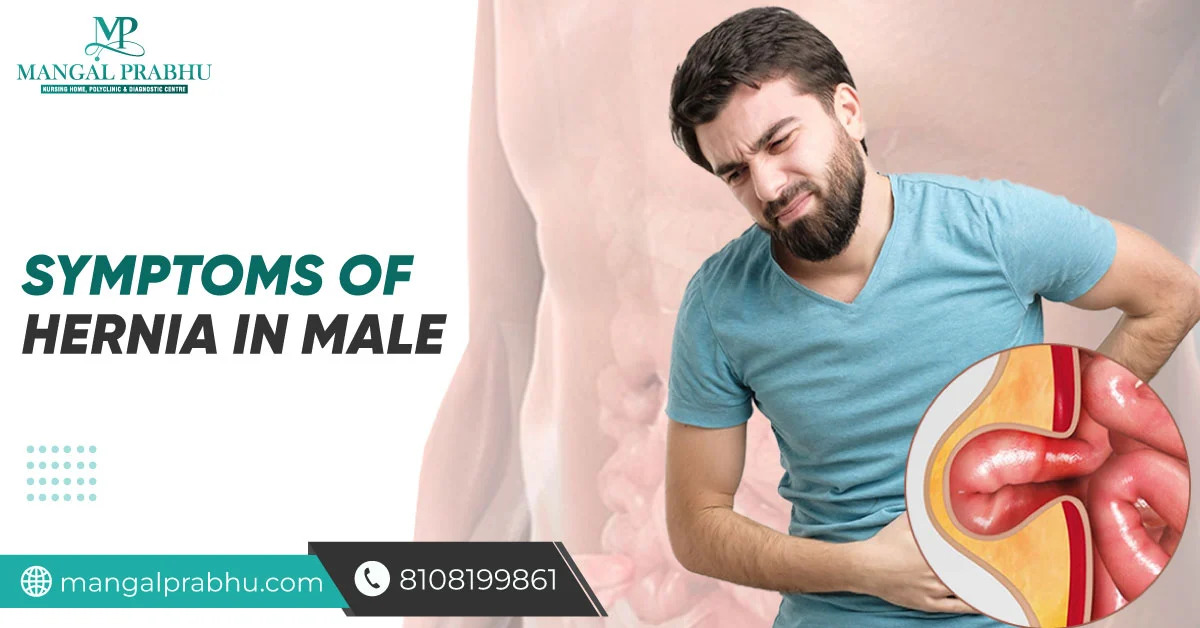
I. Introduction
This condition can develop in various parts of the body, but it commonly occurs in the abdomen or groin area. According to Mangal Prabhu Hospital, recognizing the symptoms of hernia in males is crucial for several reasons. Firstly, timely identification allows for prompt medical intervention, which can prevent complications and alleviate discomfort.
Hernia occurs when an organ or fatty tissue protrudes through a weak spot or tear in the surrounding muscle or connective tissue. Additionally, untreated hernias can lead to more serious complications, making early detection essential for optimal outcomes. Here, you can delve into the various symptoms of hernia in males.
II. Common Symptoms of Hernia in Males
i) Bulge or swelling in the groin or scrotum:
One of the most prominent signs of a hernia in males is a visible bulge or swelling in the groin or scrotum area. This bulge may become more noticeable when standing, coughing, or straining.
ii) Pain or discomfort in the affected area:
Hernias can cause varying degrees of pain or discomfort, ranging from mild to severe. This discomfort may worsen with physical activity or prolonged periods of standing.
iii) Heaviness or pressure sensation:
Some individuals with hernias may experience a sensation of heaviness or pressure in the affected area, particularly during physical exertion or lifting heavy objects.
iv) Difficulty or pain during physical activities:
Engaging in physical activities such as lifting, bending, or exercising may exacerbate hernia symptoms, leading to increased discomfort or pain.
III. Less Common Symptoms of Hernia in Males
While the aforementioned symptoms are more prevalent, hernias can also manifest through less common signs, including:
a) Nausea or vomiting:
In some cases, hernias may cause nausea or vomiting, especially if the protruding organ or tissue becomes obstructed.
b) Changes in bowel movements:
Hernias affecting the abdominal region can sometimes lead to changes in bowel movements, such as constipation or difficulty passing stool.
c) Urinary difficulties:
Inguinal hernias, which occur in the groin area, may cause urinary difficulties such as frequent urination or difficulty emptying the bladder.
IV. When to Seek Medical Attention
If you experience any of the symptoms mentioned above, it’s crucial to consult a healthcare professional like Hernia Surgeon in Navi Mumbai promptly. Delaying medical evaluation and treatment can increase the risk of complications associated with hernias, such as strangulation or obstruction of the protruding tissue.
V. Treatment Options
- Surgical interventions: Repairing weakened muscles or tissues through surgical procedures.
- Non-surgical approaches: Utilizing methods like wearing supportive garments or trusses.
- Lifestyle modifications for prevention: Implementing habits such as proper lifting techniques and maintaining a healthy weight to reduce the risk of hernia development.
VI. Conclusion
Recognizing the symptoms of hernia in males is essential for early diagnosis and prompt intervention. By being aware of the common signs and seeking timely medical attention, individuals can effectively manage hernias and minimize the risk of complications.
If you’re experiencing any symptoms suggestive of a hernia, don’t hesitate to contact Mangal Prabhu Hospital for expert evaluation and hernia treatment in Navi Mumbai. Your health and well-being are our top priorities.



